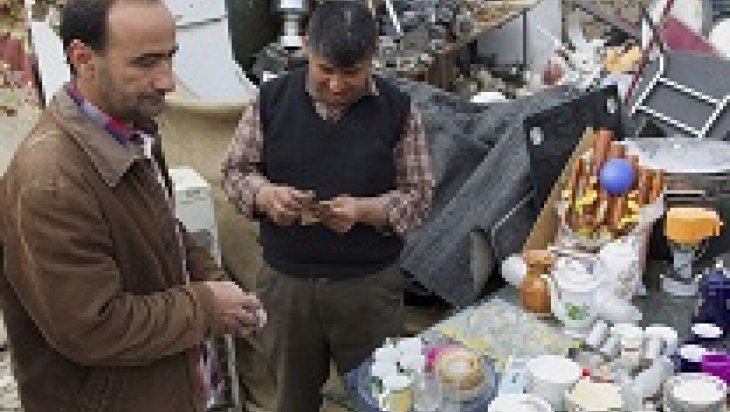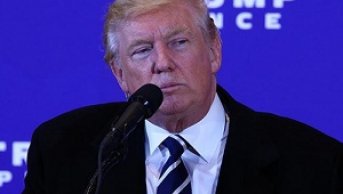The Economy of Iraqi Kurdistan

Today, in Iraq, in the sense of the development process and the form and sophistication of organizational structure, there are two regions distinctly different from each other: Iraqi Kurdistan Region (IKR) and the rest of Iraq. In the region outside of IKR, the development is hampered because of the fact that legal and institutional structures have been destroyed to a great extent by everlasting wars and internal conflicts. In the regions outside of IKR of Iraq, a large portion of the population have not adequate and safe food, basic healthcare services, life and property safety, clean drinking water, and regular electricity. On the other hand, in IKR, with a great help of the strong economic relationship with Turkey, the construction of basic economic infrastructure has been completed to a considerable degree.
The relative stability in IKR has helped to reach a higher level of the economic development than the rest of Iraq. We do not have reliable basic macroeconomic data to evaluate the general characteristics of the economy in this region in a concrete way. However, it is possible to make a short assessment on the basis of the estimations of international organizations. As well known, the basic indicator of economic development and prosperity is per capita income. Considering a ten-year period, while per capita income in IKR was approximately 50% more than the rest of Iraq in 2010, today it is estimated to be more than double
An important indicator of the economic performance of a country's government is the government budget. In spite of the conflict with Iraqi central government concerning the formation and sharing of the budget revenue, specially of the income from national energy sources, and its transfers up to the this budget year, IKR government has had a balanced budget. Moreover, this balanced budget policy has been implemented despite the social services and assistance significantly above the regional standards. In this context, we must emphasize the fact that education and health services have been provided free of charge. In addition, despite internal war and negative political and military conditions in the region, military expenditures have been kept under the control.
The region’s another important distinguishing feature is that both investment and labor market regulations are designed to encourage national and international entrepreneurs. The IKR’s another feature encouraging national and international investments is that it has created a large number of special economic zones with appropriate infrastructure, first of which was put into service in 1990. It is estimated that these special economic zones in IKR provide 40% of industrial employment and approximately one third of industrial production.
According to the Ministry of Planning data, IKR's gross domestic product (GDP) was approximately $ 24 billion for the year 2011. The sectoral distribution of GDP is as follows: service sector 30.1 %, public services 20.6 %, agriculture 17.5%, trade and transportation 13.5 %, mining and manufacturing 9.4%, construction 7.6%, and banking and insurance services 1.3%. The sectoral distribution of GDP provides important clues relating to the characteristics of economic structure. In this respect, we observe that the three fourth of IKR economy consists of services sector. Despite its capacity to produce significantly diversified goods and services when compared with other natural resource-rich countries, the development of industrial sector, specifically the manufacturing industry, is essential in order for the economic structure to sustain its growth capacity and to create competitiveness in the long run. IKR is implementing a program called the 2020 Vision in this context. The creation of a health and social services infrastructure to meet the needs of the population, the creation of an education system to ensure the improvement of living standards and to train qualified workforce needed in the labor market, the completion of the construction of physical infrastructure, the creation of a private sector-based diversified economic structure, and the establishment of effective and honest government structure are among the main objectives of the program.
On the other hand, despite the fact that IKR region has a rather young and relatively well educated population, implemented social services program significantly reduces labor force participation. Although contributing to the achievement of low unemployment rates, this situation reduces total productivity, and therefore, per capita income in a significant way. The fact that an important share of the employment is generated in the public sector also constitutes a further aspect of the employment of the economy. As the private sector begins to take the place of the public sector, the reduction in public sector employment will also necessitate the implementation of appropriate education and job creation programs in the long term. If we consider the target to privatize all of the factories belonging to the public sector by 2020, the importance of this point can be better understood.
Another important feature of IKR’s economy is the existing economic development gap among the sub-regions constituting the region. Therefore, it is very important to implement a proper economic program aiming at closing this gap. The resolution of the issues of disputed territories and sharing oil revenues with Iraq's central government permanently constitutes the prerequisites for the establishment of a stable political and economic structure. The International Energy Agency estimates that Iraq has the potential to generate $200 billion annual oil export revenue. This level of export revenue will provide a major contribution to the realization of the economic development of both IKR and Iraq rapidly. However, in order to generate this level of export revenue it is necessary to make a large amount of the investment into the energy sector, and therefore, attract international capital to the country and the region. On the other hand, as mentioned above, to attract international capital is essential to resolve the problems between the central government and the IKRB as soon as possible and end conflicts in the region.
Finally, we should emphasize that the sustainment of IKR’s economic development depends on the maintenance of economic and politic relations with Turkey. Turkish investors and labor force have contributed significantly to existing economic developments in IKR so far. Today in IKR, there are more than 800 Turkish companies operating and about 25 thousand Turkish workers working. In addition, Turkey is a bridge between the regions and the European Union not only four energy resources but also other goods and services.
This article was published in Ortadoğu Analiz journal with the title of "The Economy of Iraqi Kurdistan



